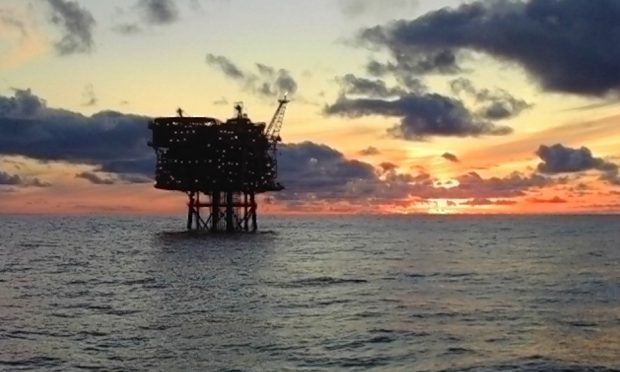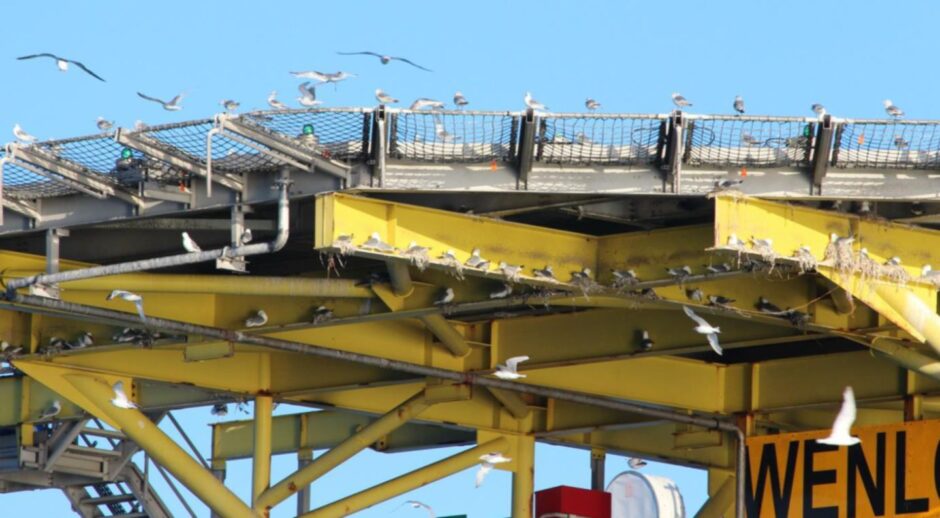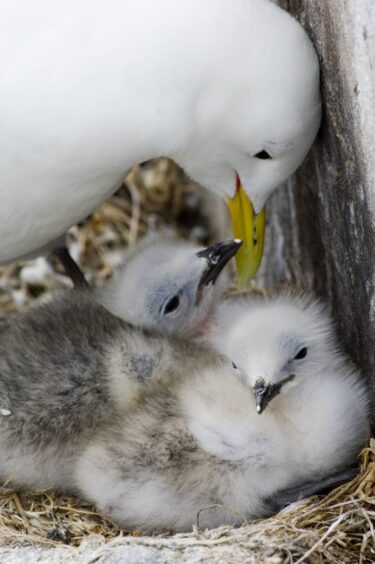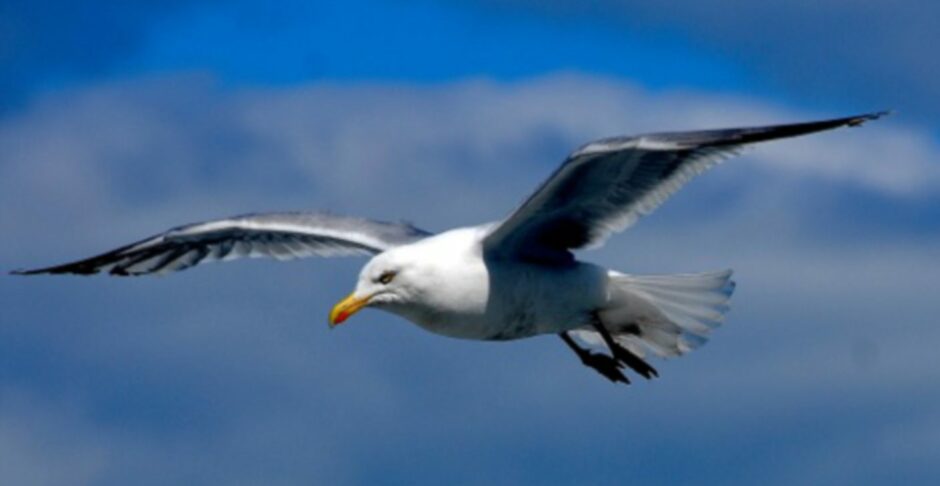Kittiwakes nesting on North Sea oil and gas platforms have prompted an offshore industry census of birds on its installations.
Trade body Offshore Energies UK (OEUK) aims to find out more about how birds are using the unconventional breeding sites.
And it is hoped the findings could help to arrest declining seabird numbers.
The new Offshore Nesting Bird Census (ONBC) is focused on the southern North Sea.
But past studies have found birds nesting on oil and gas platforms elsewhere off UK coasts and OEUK hopes its census will provide insights into wider behavioural patterns.
Census taking in up to 24 platforms
The ONBC will take place next month. It is hoped all 24 southern North Sea platform operators will take part.
Further annual surveys are expected to deliver long-term data highlighting how many birds are nesting offshore.
The census has been developed by MacNeill Ferguson, an ornithologist at Aberdeen-based energy consultants Xodus Group.
The study is supported by the Joint Nature Conservation Committee – the public body that advises the UK Government and devolved administrations on domestic and international nature conservation.
OEUK environment manager Caroline Brown said: “Some UK seabirds are facing a significant decline in numbers.
“It is vital to have a better understanding of their nesting behaviour in order to help protect them.
“We are confident the aims of this important survey will appeal to our offshore workforce and have a significant value to scientists.”
Mr Ferguson said: “There is a real opportunity here for operators to work collaboratively on a project. Sharing ecological data aids planning and benefits the environment through ecologically coherent decision making.
“It also provides an opportunity for operators who protect and monitor the birds to record a biodiversity net gain from their presence in the North Sea.”
Seabird populations under threat
Kittiwake numbers have declined by 40% in recent years, and they are now on the International Union for the Conservation of Nature red list – meaning they are at risk of global extinction.
There is similar concern about razorbills, guillemots, herring gulls and even carrion crows which are also known to use offshore oil and gas platforms to nest.
Much of the North Sea’s oil and gas infrastructure is now being decommissioned and dismantled as UK fossil fuel resources decline.
Operators are legally obliged to avoid disturbance to nesting birds during this process.
Data from the ONBC will help inform decision-making by providing up-to-date information on seabird behaviour.
Online Q&A session next week
Mr MacNeill will officially launch the census during an online Q&A session from noon to 12.45pm next Wednesday.
Anyone can join the free event to find out more about the project. Tickets are available at tickettailor.com/events/erepsnetwork/1215660
And there’s a workshop to train any budding bird spotters working offshore
OEUK is also hosting an Xodus-led training workshop (ow.ly/Ny0850R4SqO) from 10am-noon on May 30 to provide key skills for identifying some of the nesting birds typically seen offshore.
The trade body added: “This will furnish observers with the tools they need to confidently contribute to the ONBC 2024.”





Conversation